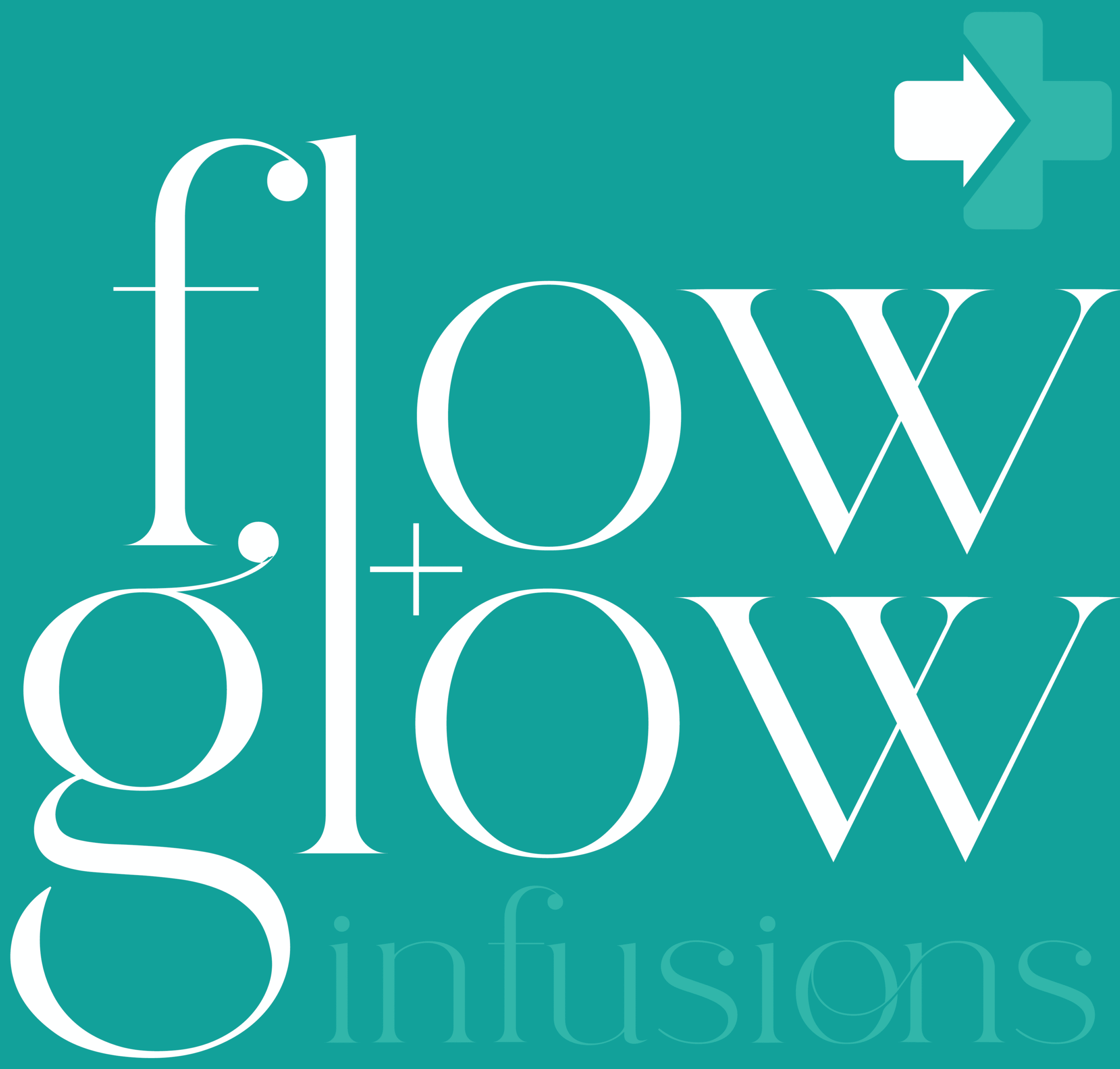At Flow and Glow, we’re dedicated to exploring therapies that promote optimal health and vitality. One molecule garnering significant attention in the realm of regenerative medicine is Nicotinamide Adenine Dinucleotide (NAD⁺). This essential coenzyme plays a pivotal role in numerous cellular processes, and its decline is associated with aging and various health conditions.
Understanding NAD⁺ and Its Role in the Body
NAD⁺ is a coenzyme found in all living cells, crucial for energy metabolism and maintaining proper cell function. It facilitates the transfer of electrons in redox reactions, essential for ATP production—the primary energy currency of the cell. Beyond energy metabolism, NAD⁺ is involved in:
- DNA Repair: Assisting enzymes that repair damaged DNA, thus maintaining genomic stability.
- Gene Expression: Influencing the activity of sirtuins, proteins that regulate gene expression related to aging and inflammation.
- Cellular Stress Responses: Modulating pathways that respond to oxidative stress and inflammation.
The Decline of NAD⁺ with Age
As we age, NAD⁺ levels naturally decrease, leading to impaired cellular functions and increased susceptibility to age-related diseases. Factors contributing to this decline include:
- Increased Consumption: Heightened activity of enzymes that consume NAD⁺ during stress responses.
- Reduced Production: Diminished synthesis due to aging-related metabolic changes.
This decline is linked to various conditions such as metabolic disorders, neurodegenerative diseases, and reduced immune function.
NAD⁺ in Regenerative Medicine
Recent research highlights the potential of NAD⁺ restoration in promoting cellular regeneration and combating aging. Key findings include:
- Enhanced Mitochondrial Function: Boosting NAD⁺ levels improves mitochondrial efficiency, leading to better energy production.
- Improved DNA Repair: Elevated NAD⁺ supports the activity of DNA repair enzymes, reducing cellular damage.
- Activation of Longevity Pathways: Increased NAD⁺ stimulates sirtuins, which are associated with extended lifespan and reduced inflammation.
These insights suggest that therapies aimed at increasing NAD⁺ levels could be instrumental in regenerative medicine, offering benefits such as improved tissue repair, enhanced cognitive function, and better metabolic health.
Methods to Boost NAD⁺ Levels
Several strategies have been explored to elevate NAD⁺ concentrations in the body:
- Supplementation: Using precursors like Nicotinamide Riboside (NR) or Nicotinamide Mononucleotide (NMN) to enhance NAD⁺ synthesis.
- Lifestyle Interventions: Engaging in regular exercise, calorie restriction, and intermittent fasting, which have been shown to naturally increase NAD⁺ levels.
- IV Therapy: Administering NAD⁺ intravenously for rapid and direct absorption, a service offered at Flow and Glow to support cellular health.
Conclusion
The decline of NAD⁺ with age underscores its importance in maintaining cellular vitality and overall health. By focusing on strategies to restore and maintain NAD⁺ levels, we can tap into the body’s innate regenerative capabilities. At Flow and Glow, we’re committed to integrating such cutting-edge insights into our wellness offerings, helping you achieve optimal health and longevity.
For more information, view the full study here:
https://pmc.ncbi.nlm.nih.gov/articles/PMC9512238/
